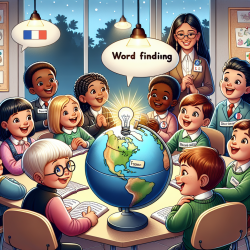When it comes to the well-being and education of our children, conflicts can sometimes arise between parents and school staff. One effective way to resolve these disputes is through special education mediation. This process can be a game-changer in ensuring that the needs of the child are met in a collaborative and respectful manner.
What is Special Education Mediation?
Special education mediation involves a neutral, impartial, and trained mediator who assists parents and school staff in their negotiations. This voluntary process helps both parties convene and conduct meetings to clarify issues, focus on the needs of the child, and explore possible solutions in a confidential setting.
The Role of the Mediator
Mediators are trained neutrals skilled in helping people hear and understand each other. They work jointly with both parties to find solutions to difficult issues in special education. Importantly, mediators do not take the role of anyone's advocate but support and assist everyone in the negotiation process.
Preparing for Mediation
Preparation is key to a successful mediation. Parents and school staff often have many questions as they prepare for this process. To help with this, the Virginia Department of Education requested Art Stewart, a coordinator for many years of a statewide special education mediation system, to identify frequently asked questions and provide responses.
Common Questions Asked by Disputants
- What issues can be addressed in mediation? Any issue related to the child's special education program can be discussed.
- Is mediation confidential? Yes, the process is confidential to encourage open and honest dialogue.
- Who can request mediation? Either the parents or the school staff can request mediation.
- How long does mediation take? The length of mediation can vary but typically takes a few hours to a full day.
- What if we can't reach an agreement? If no agreement is reached, other dispute resolution options remain available.
Why Choose Mediation?
Mediation offers several benefits:
- Focus on the Child: Mediation keeps the child's needs at the forefront of discussions.
- Confidentiality: The confidential nature of mediation encourages honest communication.
- Cost-Effective: Mediation is generally less costly than litigation.
- Collaborative: It fosters a collaborative environment where both parties work together to find a solution.
Conclusion
Special education mediation is a valuable tool for resolving disputes between parents and school staff. By focusing on the needs of the child and fostering a collaborative environment, mediation can lead to positive outcomes for everyone involved.
For more information, please follow this link.










